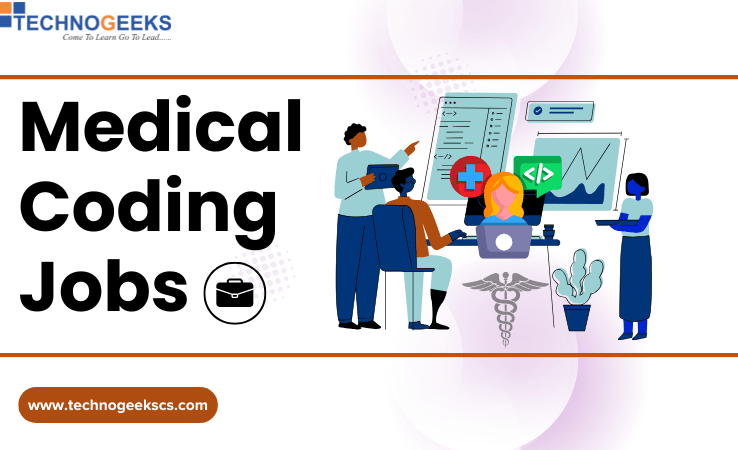Introduction
In the rapidly changing world of software development, where innovation and competition are strong, organizations are always searching for ways to quickly and efficiently best and high quality software. Agile and DevOps methods have become valuable strategies to meet these goals.
In this blog, we will discuss how do Agile and DevOps interrelate. But before diving into their interrelation, let’s first understand the role of Agile and DevOps in software development.
Agile is a method that highlights providing users with value in small, frequent steps. It’s all about getting better all the time, being flexible, and making sure customers are happy. On the other hand, DevOps is about automating how software gets delivered and put into action. It wants to make things faster, better, and more dependable.
A survey of IT leaders revealed that 87% of organizations actively use Agile development, and 75% are using DevOps. Source
Agile and DevOps are closely interconnected as they share a common goal: improving software delivery. By combining the strengths of Agile and DevOps, organizations can create a comprehensive approach to software development. This approach enables them to deliver software more quickly, reliably, and efficiently.
Also Read: What Is Docker In DevOps?
Table of Contents
ToggleWhat Is Agile?

Agile is a software development methodology that strongly focuses on iterative development and continuous feedback. Iterative development means that the software is developed in short cycles, with each cycle resulting in a working product & Continuous feedback means that the software is constantly tested and improved.
Let’s take an simple example of Agile so we can easily understand the concept of Agile:
- A team of software developers is working on a new web application.
- They start by dividing the project into small, manageable tasks called “sprints”.
- They then work on these tasks in short cycles, with each cycle lasting about two weeks.
- At the end of each cycle, they actively release a working version of the web application to users for testing and feedback.
- They use the feedback from users to improve the web application in the next cycle.
Note: This process continues until the web application is complete.
Advantages Of Using Agile
Faster Time-to-Market
Agile can help teams to deliver software more quickly, as they break the project into smaller iterations (sprints). This helps organizations release useful features and functions to users faster, giving them an advantage in the market.
Flexibility and Adaptability
Agile accepts change and promotes flexibility. It allows for adjustments to requirements, priorities, and scope as the project progresses. This flexibility helps teams to respond effectively to evolving customer needs and market conditions.
Improved Quality
Agile mainly cares about always testing and putting things together as we go along in the development process. This way, we can catch and fix problems early, making the software better. We keep checking and testing often to spot and fix any bugs or missing features quickly.
Increased Transparency and Collaboration
Agile promotes transparent communication and collaboration within the development team and with stakeholders. Daily stand-up meetings, frequent demonstrations, and open channels of communication foster a shared understanding of project progress, challenges, and goals. This transparency improves teamwork and ensures alignment among team members.
What Are Agile Tools?
- Jira
- Confluence
- Trello
- GitLab
- GitHub
- Jenkins
- SonarQube
What Is DevOps?

DevOps is a practice that focuses on bringing together tools, practices, and people to eliminate the barriers between development and operations departments. In simple terms, DevOps mainly focuses on collaboration and communication between development (Dev) and operations (Ops) teams.
Here is a simple example of DevOps:
- Team of software developers working on a web application
- Traditional model: Developers write the code, hand it over to operations team for deployment
- DevOps model: Developers and operations teams collaborate closely throughout the development process
- Automation tools streamline the deployment process
- Tasks like server setup, environment configuration, and code deployment are automated
- Faster and more reliable delivery of the web application to users
- Quick response to user feedback and continuous improvement
- Collaboration leads to smoother workflows, better communication, and increased efficiency
Interested In Learning DevOps With AWS?
Enroll Now Of Our DevOps With AWS Course In Pune
Advantages Of Using DevOps
Faster Time-to-Market
DevOps practices enable organizations to deliver software faster, reducing the time it takes from development to deployment. This helps businesses stay competitive in the market.
Improved Software Quality
DevOps focuses on automation, testing, and monitoring, leading to improved software quality. By detecting & addressing issues early in the development process, organizations can deliver more reliable and higher-quality software to their users.
Interested In Learning Software Testing?
Enroll Now Of Our best software testing Course In Pune
Increased Collaboration and Communication
DevOps fosters collaboration and communication between development, operations, and other teams involved in the software delivery process. This collaboration leads to better alignment, smoother workflows, and improved teamwork.
Enhanced Scalability and Reliability
DevOps enables organizations to scale their infrastructure and applications efficiently. By automating processes and using cloud technologies, organizations can handle increased demand, improve system reliability, and ensure a seamless user experience.
How do Agile And DevOps Interrelate?
So, the answer to the question, “How do Agile and DevOps Interrelate?” Agile and DevOps are closely related. The main goal of both Agile & DevOps is to develop and deliver high-quality software effectively. While Agile focuses on controlling the software development process, DevOps comes into play when bringing the code into production and automating the process. By combining Agile sprints with DevOps automation, software development teams can accelerate their development process and improve product quality.
Let’s discuss How do Agile and DevOps Interrelate in Different Technologies?
Tool Category | Tools | Description |
| Version Control | Git, SVN, Mercurial | Track changes to code over time, allowing teams to roll back changes if something goes wrong. |
| Continuous Integration | Jenkins, Travis CI, CircleCI | Automate the process of putting together code changes from various developers, running tests, and letting everyone know how the build is progressing automatically. |
| Configuration Management | Ansible, Chef, Puppet | Manage and automate the configuration of infrastructure and servers, ensuring consistency and scalability. |
| Containerization and Orchestration | Docker, Kubernetes | Put applications into containers, which makes it simpler to scale and move them around. |
| Cloud Platforms | AWS, Azure, Google Cloud | Provide various services that help with Agile and DevOps, such as flexible infrastructure, serverless computing, managed databases, and automatic deployment choices. |
| Monitoring | Prometheus, Nagios, Datadog | Monitor the performance, availability, and health of applications and infrastructure. |
| Logging | ELK Stack (Elasticsearch, Logstash, Kibana) | Aggregate and analyze logs for troubleshooting and insights. |
These examples demonstrate a few of the technologies commonly used alongside Agile and DevOps methodologies. The specific technologies chosen may differ depending on the demands, interests, and nature of the software development projects of the organization.
Conclusion
I hope you get a better understanding of “How Do Agile And DevOps Interrelate?” in this blog.
Agile and DevOps work hand in hand to enable efficient software development. Their interrelation results in improved customer satisfaction and increased business success.
Companies that use both methods (Agile & DevOps) can use their strengths to quickly create excellent software and keep up with changing customer needs.
If you are ready to invest the time and effort, Agile and DevOps can become the most powerful combination that helps you to create high and best quality software rapidly and efficiently.
















